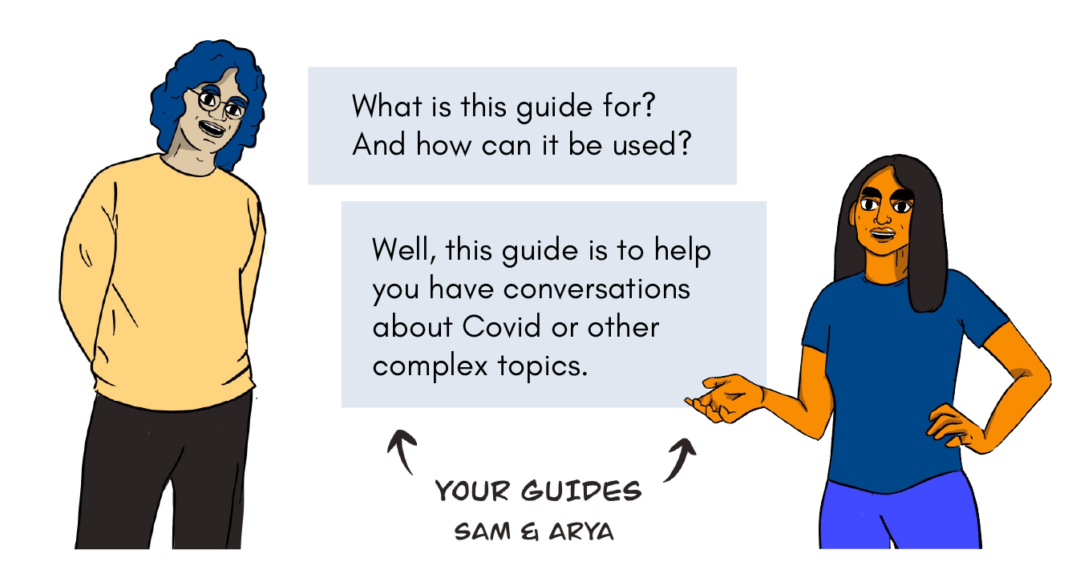Jo just started a new job after a long time being unemployed. They arrive at your office unannounced, extremely upset and agitated, almost incoherent with distress.
Read moreTopic: Supporting Staff.
Situations that require support on personal matters, mental health and/or attention outside of technical skills training.
Home → This
How not to jump to conclusions
You meet Max for the first time when he comes to an interview. He is tall, thickset, wearing a black hoody, and with face tattoos.
Read moreThe Illustrated Guide to Covid Conversations
Financial Insecurity
Sue has been working with you for a few months after being unemployed for two years. Initially she was very enthusiastic and engaged, but recently she has begun to show signs of tiredness at work. You notice she is no longer bringing her lunch and seems to be withdrawing from social events after work. She approaches you to ask for an advance on her pay.
Asking questions at work – Q&As for young workers
Learn more about how to make informed choices in difficult situations using the Workplace Decision maker framework– think about what you would do and why?
Listen to the experiences of others in the audio stories to understand how they have felt and navigated tricky or sensitive situations.
See the different ways young workers or employers approach a situation and how it can make all the difference in the C.L.E.A.R scenarios and flowcharts.
Cues & Clues for Effective Managers
What happens when I become a manager?
When we become a manager, our lives change. We move from being responsible only for the quality and quantity of our own work to being responsible and accountable for the performance of others.
Success within the workplace is now redefined for us to include how well the team is performing, how we are managing the individuals within the team and how well we are working with our colleague managers.
Read moreLooking for more help? Use these search terms
There are many existing resources available online. Use these search terms to help direct you to the most relevant resources
Read moreSix questions to find out if your work is working for you.
When thinking about their ideal job, most people think about pay, how far they have to travel, their career path, or what ‘work perks’ they get. But research shows the things that actually make a job great are some ‘work related factors’ that might not be on your list at all.
Ask yourself these 6 questions that will get you thinking about whether your work is actually working for you.
Read moreBullying in the workplace
You see one of the supervisors giving another apprentice a hard time, it seems to happen every morning when they arrive on-site – they are too late, or too early, or have brought the wrong tools, worn the wrong clothes – nothing they do seems right. You know this is actual bullying, rather than normal behaviour, because it has been going on for a few months, repeatedly targeting one person, and you can see how it is upsetting the apprentice.
Do you…
Read moreWhat’s your role in creating a mentally healthy workplace?
A typical job description is usually about the responsibilities and duties of the job, but what responsibilities and duties do managers and young people have to both themselves, and other workers, to ensure they are contributing to an emotionally safe workspace?
We’ve asked young people what they look for in an ideal supervisor, and asked managers what they would like to see in their employees. See the job descriptions below and see how you are contributing to a positive and productive working environment.
Read more
